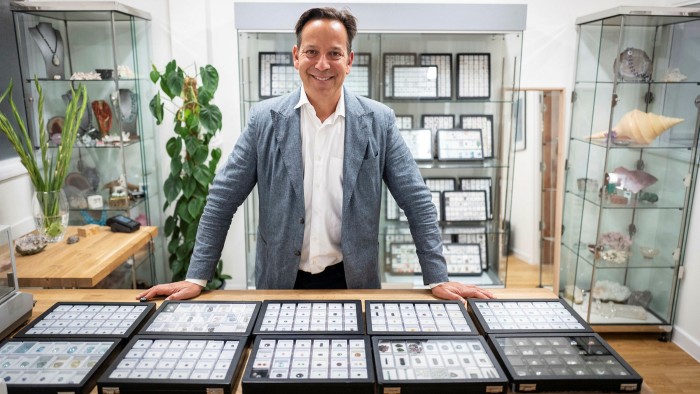Middle East pact a chance for region’s diamond trade to shine globally

Roula Khalaf, Editor of the FT, selects her favourite stories in this weekly newsletter.
The diamond industry rarely sees developments that feel like a turning point. Yet the normalisation agreement between Israel and the United Arab Emirates — and the subsequent direct trade deal between Israel and Dubai’s diamond bourses — has the markings of one.
After years of discreet collaboration, the pact permits direct flights, and therefore direct shipping of stones, between the two countries. The ripple effect on the industry “could turn out to be much more significant than what it looks like on the surface”, says Tobias Kormind, managing director of London-based online jeweller 77 Diamonds. “It’s more of a good-faith agreement than anything else at this point, but it goes a long way and represents a lot,” says New York-based diamond analyst Paul Ziminsky. “As geopolitical relations ease, it makes globalisation [of the industry] more realistic and easier.”
According to Yoram Dvash, president of the Israel Diamond Exchange and newly elected president of the World Federation of Diamond Bourses, this new deal will stimulate activity and allow for an increase in distribution of goods.
“The industry has been suffering from a lack of profitability, a shortage of financing and reduced demand,” he says. “It needs to transform to meet the demands of the 21st century.” Furthermore, the coronavirus pandemic and subsequent lockdowns have been disastrous, costing the industry 80-85 per cent of its business in March and April, he says, with fears of a second wave also taking their toll.
Olivier Duran, sales manager at Dany Avlas Diamonds, a Tel Aviv-based manufacturer and supplier of fancy-shaped diamonds, is planning to renew and increase business with existing clients in Dubai, with whom he was until recently dealing only discreetly.
“Dubai is a very wealthy city that brings lots of [retail] customers from abroad as well, so people travel there like our important clients in Europe, for example,” says Mr Duran, who travelled to and from Dubai on his Belgian passport to meet clients.
Meanwhile, Amit Dhamani, managing director of Dubai-based family business Dhamani Jewels Group, has been discussing the potential of Israel’s relatively youthful market — the average age of customers is about 30 — for his Dusoul brand, aimed at 22- to 38-year-olds.
Insiders believe Dubai will host more rough-stone tenders, maybe at Europe’s expense, so Israeli traders who buy the bigger stones can attend — including Mr Dvash, who has his own diamond manufacturing business. “I’ll have [many] more opportunities to see [many] more stones,” he says.
London-based jeweller Thelma West, who co-runs diamond wholesale company Yeraua, believes Antwerp’s diamond market will lose out as a result of the new Israel-Dubai axis, which “will corner not just the rough market but also the polished”, she says. However, she adds that this will not happen overnight, as Israeli jewellers will first need to move to the UAE and set up shop there.
The diamond industry’s traditional resistance to change could be a challenge, according to Jason Holt, chief executive of London-based jeweller Holts Gems. “Some people will not travel or change their buying habits in terms of where they source diamonds, for example,” he says. “It will take time as the sector is quite old-fashioned.”
Alex Peterfreund, managing director of Espeka Diamonds in Dubai, warns against a potential clash of business cultures. “Israelis are very transactional. They like to make business quick. They like [to have] two meetings and close the deal,” he says, whereas “the Emiratis are much more polite. They are much more social. They don’t make business with the company, they make business with the person.”
Mr Holt concludes: “People are looking for change and different ways of doing things, so this is an opportunity to shape the diamond industry that we want. It’s been in the hands of the same people for a very long time.”
Comments